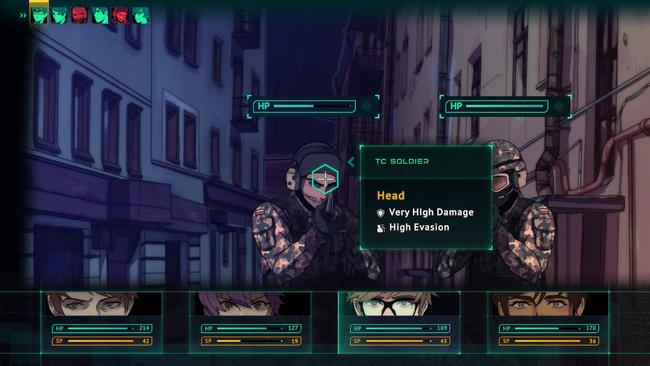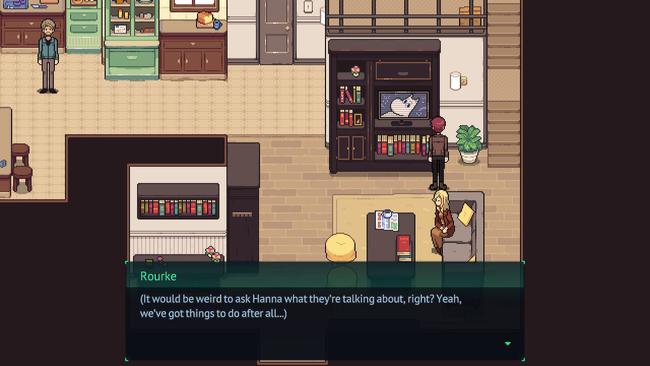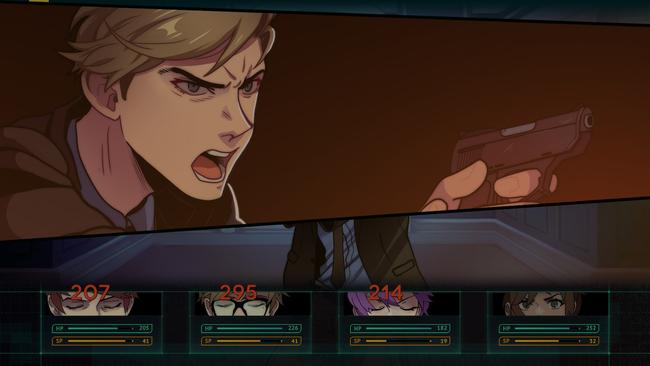
Long Gone Days Review
Long Gone Days is a project that’s been in the works for many years, with a decent following throughout the original demo launch, crowdfunding, and early access release. Now with the final game out, it’s time to see the days through.
In Long Gone Days you play as Rourke, who was born and raised in The Core: an underground paramilitary (“underground” as in sub-surface, not secret, but also, it is secret). He’s been trained since birth to be a sniper, yet his first deployment opportunity arises when Rourke’s superior has broken his arm. On your first mission, you take out several enemies with ease, but when looking for stragglers, you come across a child. This is when you realize your true mission, and soon after, defect.
The first aspect of gameplay you'll experience is sniping, aiming for opponents with limited time and ammo. Thankfully these segments are pretty easy, and they don't show up very often after the beginning. The game is largely narrative-focused, with actual combat encounters being few and far between bouts of dialogue. These fights are turn-based, allowing up to the standard four party members at a time.

As a sniper, you can choose to aim at different body parts. Aiming for the head has a lower chance of hitting but deals the most damage, hitting the arms or equivalent rolls a small chance to induce paralysis and the main body is the easiest to hit but can sometimes feel not worth the little damage it deals. In practice, however, I was able to land headshots frequently enough that I only aimed elsewhere if I needed to stall the enemy. I otherwise found paralysis so rare to trigger without special items.
One of the characters, Ivan, is a pacifist so he’ll refuse to throw grenades or equip a gun, but he is a very useful support character. The only way I got through some of the boss encounters was because of Ivan’s abilities. There didn’t seem to be EXP and levels as you may expect in most RPGs, so much as characters would learn new skills after certain points in the story instead. After a successful fight, you can choose between getting an item, which might be something for battle, healing, or a unique piece of equipment, or restoring your SP (skill points). Skill points are hard to come by, as there are hardly any points in the story where they are restored, and there are barely any items to do so either. Therefore I had to carefully choose after a fight when to restore my team’s SP.
As you make your way away from The Core, and uncover their true mission, you’ll travel through various countries in Europe. One problem, you only speak English. Thankfully you’ll befriend locals (or at least people who know the language) and they will interpret for you. Before that, you won’t be able to understand what NPCs are saying unless you happen to know it yourself.
There are also many sidequests in this game, and as you move between locations, some might be missed. Most of these are basic fetch quests, but some involve making a dialogue decision. I finished one quest in Germany in which I lost morale from my answer. Morale is a system that rewards you for doing the right thing in side quests, as well as encouraging your friends. In the boss fights I’d often be spoken to and defending my beliefs in the right way would increase the team’s morale. This would affect the ending, and I’m not sure if much else. Apparently, in the prior version of the game, the morale system was in place of skill points.

There are a few puzzles throughout as well, but the game strongly holds your hand as it guides you to a solution. In one example, I’d already noticed a gap in the wall but the game made sure to stop me and have the characters discuss the breeze they were feeling, what it could potentially be, and how to solve it. If that’s the case, it feels pointless even having puzzles, with only a couple of secrets not being blatantly pointed out to me.
The music can get a bit aggravating at times; I know there’s no voice acting, but I am still trying to read. Despite this, I did like the few songs in the soundtrack, once again fitting into the category of appropriate for each moment, but I probably wouldn’t listen to it elsewhere.
The game world outside of battle is in a pixel art style, with proportionate characters that have simple faces, and enough detail to make the world seem real. Meanwhile, the portraits and battle screens are illustrated in a nice clean style, from the party’s perspective showing the enemies in front, which weren’t static. Special animations for attacks cut in overscreen, and there are also some flashing effects for damage. The battle backgrounds look great, especially the lighting. Very rarely there were some slightly animated cutscenes, but most things happened through dialogue or in the world. There weren’t too many enemy designs, but I did get to fight things like drones and one of those robot dogs with a turret thanks to the modern setting.
I had some minor bugs like the portraits not showing the correct look once the character was revived, but I didn’t have any crashes or things that actually impacted my gameplay. Aside from initially loading the game, I didn’t experience any other loading issues.
The story isn’t afraid to get into political themes, and it wouldn’t work very well if it avoided them. Especially once we reached Germany, with the themes of immigration sentiment and political parties being used by outside influences. It doesn’t (outside of puzzles) insult the player’s intelligence by pointing out the obvious allusions. While I only got a bit less than fifteen hours with the characters, most of them got a decent amount of development, and everyone felt like they belonged.

I didn’t have any preconceptions about the game before experiencing it for myself, which given the changes to the game since early access is likely a good thing. The hand-holding was grating, but the overall story is good, mostly grounded, and the combat was decently balanced with every party member being viable outside of their strong connections. If you’re looking for a narrative-focused RPG that touches on modern issues, that have been long ongoing, Long Gone Days is a great option.